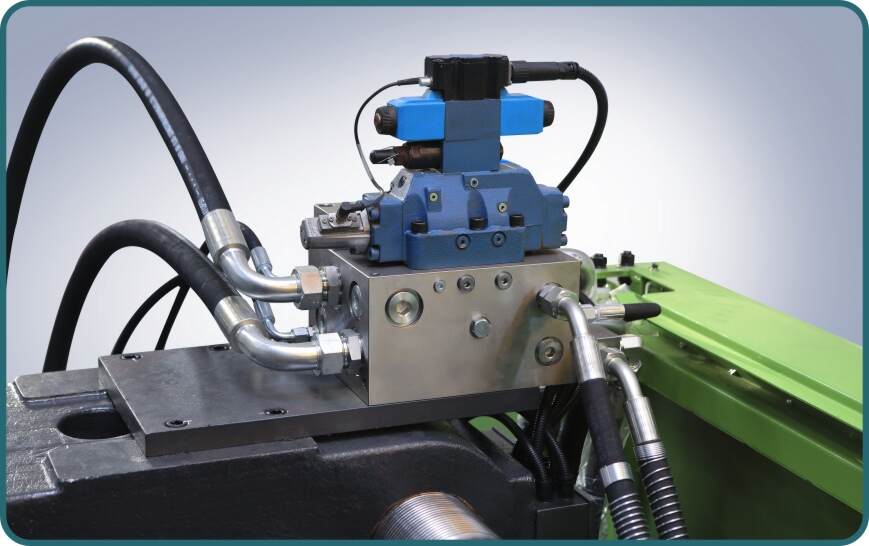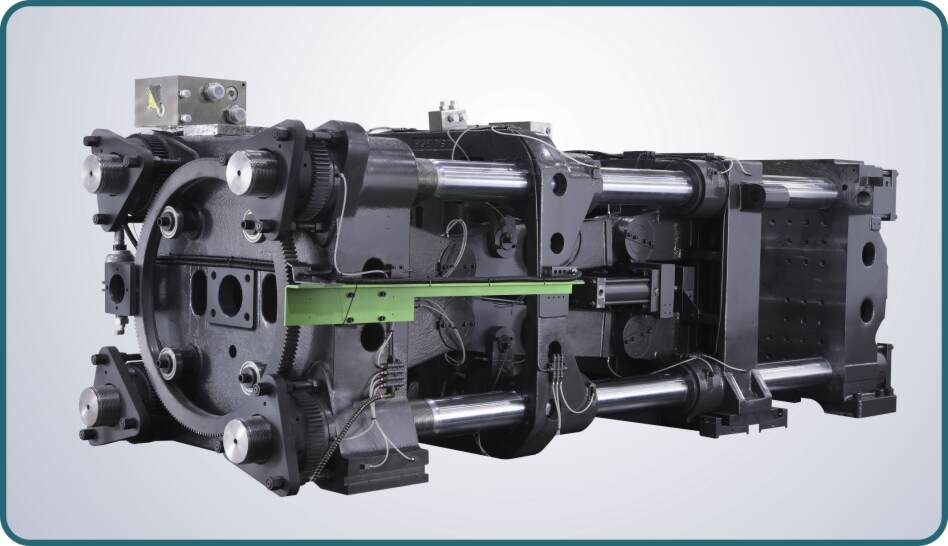Email format error
Email cannot be empty
Email already exists
6-20 characters(letters plus numbers only)
The password is inconsistent
Email format error
Email cannot be empty
Email does not exist
6-20 characters(letters plus numbers only)
The password is inconsistent

Plastic Injection Moulding Machine Manufacturer
Latest Blog

Plastic Machine Injection Servo Factory: A Comprehensive Guide
In the realm of modern manufacturing, the plastic machine injection servo factory plays a crucial role in producing a vast array of plastic products. From everyday household items to complex automotive components, the efficiency and precision of these factories ensure the high quality and consistency of the final products. This post delves into the intricacies of plastic machine injection servo technology, its advantages, and the operational dynamics within a factory setting.
What is Plastic Machine Injection Servo Technology?
Plastic machine injection servo technology refers to the use of servo motors to control the injection molding process. Unlike traditional hydraulic systems, servo-driven injection molding machines utilize electric servo motors, offering precise control over various aspects of the molding process such as injection speed, pressure, and position. This precision translates into better product quality and reduced cycle times.
Key Components
1. Servo Motor: The heart of the system, responsible for controlling movements with high accuracy.
2. Injection Unit: Where the plastic material is melted and injected into molds.
3. Clamping Unit: Holds the mold in place during the injection and cooling process.
4. Control System: A sophisticated computer interface that manages the operations of the machine.
Benefits of Servo Technology
The use of servo technology brings several benefits:
- Energy Efficiency: Servo motors consume less power compared to hydraulic systems, leading to significant energy savings.
- Precision: Enhanced control over the molding process ensures uniformity and high quality in the final products.
- Speed: Faster response times reduce cycle times, increasing overall productivity.
- Noise Reduction: Servo motors operate more quietly than hydraulic systems, creating a better working environment.
The Operational Dynamics of a Plastic Machine Injection Servo Factory
Understanding the operational dynamics within a factory is essential for appreciating how these factories achieve their efficiency and high output.
Production Workflow
1. Material Preparation: The process begins with preparing the raw plastic materials. These materials are often in the form of pellets, which are then fed into the injection molding machine.
2. Injection Molding: The servo motor controls the injection unit, ensuring precise melting and injection of the plastic into the molds.
3. Cooling and Ejection: Once the plastic has been injected into the mold, it is cooled and solidified. The clamping unit then opens the mold, and the finished product is ejected.
4. Quality Control: Each product undergoes stringent quality checks to ensure it meets the required standards.
5. Assembly and Packaging: Depending on the product, it may undergo additional assembly before being packaged for shipment.
Quality Control Measures
In a factory, maintaining high quality is paramount. Several quality control measures are in place:
- In-Mold Monitoring: Sensors within the mold monitor the process in real-time, ensuring each product is manufactured to exact specifications.
- Post-Production Inspection: Finished products are inspected for defects such as warping, surface blemishes, and dimensional inaccuracies.
- Statistical Process Control (SPC): Data from the manufacturing process is analyzed to identify trends and prevent defects.
Advantages of a Plastic Machine Injection Servo Factory
The shift towards servo technology in plastic injection molding offers several advantages over traditional methods. Let's explore these benefits in detail.
Energy Savings
One of the most significant advantages is energy efficiency. Servo motors only consume power during specific movements, unlike hydraulic systems that continuously consume energy. This can result in energy savings of up to 50%, making the factory more environmentally friendly and cost-effective.
Improved Precision and Quality
Servo-driven machines offer unparalleled precision in controlling the molding process. This precision ensures that each product is manufactured to exact specifications, reducing the likelihood of defects and improving overall product quality. The ability to fine-tune parameters such as injection speed, pressure, and position results in consistent and high-quality outputs.
Faster Cycle Times
The rapid response of servo motors allows for quicker adjustments during the molding process. This speed translates into shorter cycle times, enabling the factory to produce more units in less time. Faster cycle times not only increase productivity but also reduce production costs.
Reduced Maintenance
Servo motors and electric systems generally require less maintenance compared to hydraulic systems. The absence of hydraulic oil eliminates the need for regular oil changes and reduces the risk of leaks and associated downtime. This leads to lower maintenance costs and higher machine uptime.
Challenges Faced by Plastic Machine Injection Servo Factories
Despite the numerous advantages, plastic machine injection servo factories face several challenges that must be addressed to optimize operations.
Initial Investment
The initial cost of setting up a plastic machine injection servo factory is higher compared to traditional hydraulic systems. The advanced technology and precision components come at a premium. However, the long-term savings in energy and maintenance costs often justify the initial investment.
Technological Expertise
Operating and maintaining servo-driven machines require specialized knowledge and skills. Factories must invest in training their workforce to ensure they can effectively manage and troubleshoot these advanced systems. The complexity of the technology can pose a learning curve for operators accustomed to traditional hydraulic systems.
Integration with Existing Systems
For factories transitioning from hydraulic to servo technology, integrating new servo-driven machines with existing systems can be challenging. Compatibility issues and the need for system upgrades may arise, requiring careful planning and execution to ensure a smooth transition.
Future Trends in Plastic Machine Injection Servo Technology
As technology continues to evolve, several trends are shaping the future of plastic machine injection servo factories.
Automation and Industry 4.0
The integration of automation and Industry 4.0 principles is transforming the manufacturing landscape. In a factory, automation can enhance efficiency and reduce human error. Advanced robotics, automated quality control, and predictive maintenance systems are becoming increasingly common, driving productivity and reliability.
Sustainable Manufacturing
With growing environmental concerns, sustainable manufacturing practices are gaining importance. Servo technology inherently supports sustainability through energy efficiency. Additionally, advancements in biodegradable plastics and recycling processes are being integrated into the manufacturing process, reducing the environmental impact.
IoT and Smart Manufacturing
The Internet of Things (IoT) is revolutionizing how factories operate. In a factory, IoT-enabled sensors and devices can provide real-time data on machine performance, product quality, and energy consumption. This data allows for predictive maintenance, minimizing downtime and optimizing operations.
Case Study: Successful Implementation of Servo Technology
To illustrate the benefits of servo technology, let's examine a case study of plastic machine injection servo factory that successfully implemented this technology.
Background
XYZ Plastics, a leading manufacturer of automotive components, decided to upgrade its production line by incorporating servo-driven injection molding machines. The company aimed to enhance product quality, reduce energy consumption, and increase production efficiency.
Implementation Process
1. Assessment and Planning: XYZ Plastics conducted a thorough assessment of its existing production line and identified areas for improvement. The company collaborated with a leading supplier of servo-driven machines to develop a detailed implementation plan.
2. Installation and Training: The new machines were installed, and the workforce received extensive training on operating and maintaining the servo-driven systems.
3. Optimization: XYZ Plastics fine-tuned the machines' parameters to optimize the production process. Continuous monitoring and adjustments ensured the machines operated at peak performance.
Results
The implementation of servo technology brought several positive outcomes for XYZ Plastics:
- Energy Savings: The factory achieved a 40% reduction in energy consumption, significantly lowering operational costs.
- Improved Quality: The precision of the servo-driven machines resulted in a 20% reduction in product defects, enhancing overall product quality.
- Increased Productivity: Faster cycle times led to a 25% increase in production capacity, enabling XYZ Plastics to meet growing demand.
Conclusion
The plastic machine injection servo factory represents the future of plastic manufacturing. With its numerous advantages in terms of energy efficiency, precision, speed, and reduced maintenance, servo technology is transforming the industry. Despite challenges such as initial investment and the need for specialized expertise, the long-term benefits make it a worthwhile investment.
As we look to the future, trends such as automation, sustainable manufacturing, and IoT integration will further enhance the capabilities of plastic machine injection servo factories. Companies that embrace these advancements will be well-positioned to thrive in an increasingly competitive market.
In summary, the evolution is a testament to the power of technological innovation in driving efficiency, quality, and sustainability in manufacturing. By staying at the forefront of these advancements, manufacturers can ensure their continued success and contribute to a more sustainable future.

